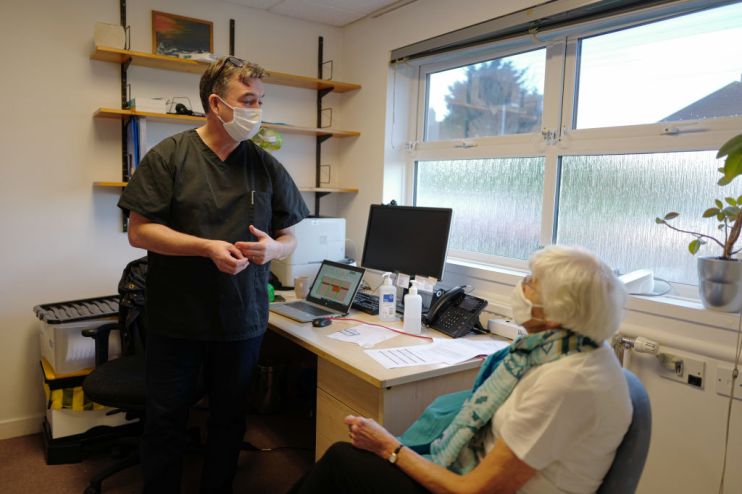Law student died only weeks after calling his GP about a lump on his neck

The family of law student David Nash believe there were missed opportunities to spot a treatable infection which led to his death because he was not given a face-to-face GP appointment.
Here is the sequence of events in the three weeks between his first GP appointment and his death, according to his parents, Andrew and Anne Nash.
David’s father said his son first contacted Burley Park Medical Centre on October 14 2020 about an enlarged lump on his neck and had a phone consultation with a GP.
Mr Nash believes that a physical examination at this point would have revealed that David was suffering from mastoiditis.
He said the GP decided to see how the lump developed and arranged for a blood test to be conducted 19 days later, if the problem persisted. Notes later released to the family showed that this would be reviewed sooner if additional symptoms appeared, including a fever.
Mr Nash said his son contacted the practice again on October 23 complaining of ear pain and was dealt with again on the phone, this time by a nurse practitioner.
He said no medical history was taken, which would have revealed his history of chronic middle ear disease, and mastoiditis was ruled out despite no physical examination taking place.
Mr Nash said David contacted the GP service again five days later after having a fever for four days and passing blood in his urine.
Again on the phone, he was given antibiotics for a possible a urinary tract infection (UTI) despite the doctor admitting there were no other signs of this. Tests later showed no UTI.
Mr Nash said that in the next few days his son became increasingly unwell and he contacted the GP service for a fourth time on November 2 at 8.45am.
He said David was now very ill with a nine-day fever, debilitating neck pain, pain behind his eyes and in his sinuses, nausea and nocturnal headaches.
Mr Nash said that this was supposed to be the day David attended for a blood test – Day 19 since his first appointment – but the nurse told him not to come in due to his fever being an indicator of possible Covid-19, despite testing negative.
He said: “Ironically, the very symptom that was indicated to prompt an earlier review, is now used as the reason for cancelling his appointment.”
Mr Nash said his son was told “you’re sounding like you’re feeling a bit sorry for yourself’” and was told to take codeine, which appeared to make him drift in and out of consciousness.
He said David deteriorated during the course of November 2.
By 4.41pm, David’s partner, Ellie, made the first of a series of five calls to the NHS 111 number.
Mr Nash said these were “shambolic” and, at one point, the call handler tried to categorise his son’s problems as “dental”.
According to transcripts obtained by the family, the call handler had a private “sidebar” conversation with a clinician who says “I can’t do with these that won’t talk to us” and advises that David was not to be prioritised further just because he was vomiting.
Mr Nash said: “It is not until David’s partner rings for a fifth time, as David is becoming confused and slurring his speech, does the tick box matrix completed by the call handler indicate an emergency response due to a possible stroke.”
The handler called an ambulance and David was taken to the Emergency Department at St James’s Hospital, in Leeds, where it took more than four hours to arrange a CT scan, despite being admitted with confusion and bradycardia, which are signs of raised intracranial pressure.
Mr Nash said: “At one point, David’s bloods sat at A&E reception for over an hour before being transported to the laboratory thus significantly delaying the CT scan and his subsequent urgent neurological referral.”
He said: “As David became more confused and agitated, due to ever increasing intracranial pressure, he was left unattended and was observed to shuffle to the end of his trolley, stand and then fall, suffering a head trauma on impact.”
Mr Nash said his son was not breathing when staff attended and it took 45 minutes before he was intubated during which time his pupils were dilated and unresponsive.
David was transferred to Leeds General Infirmary where he had extensive neurosurgery but his life support was withdrawn on November 4, the family said.